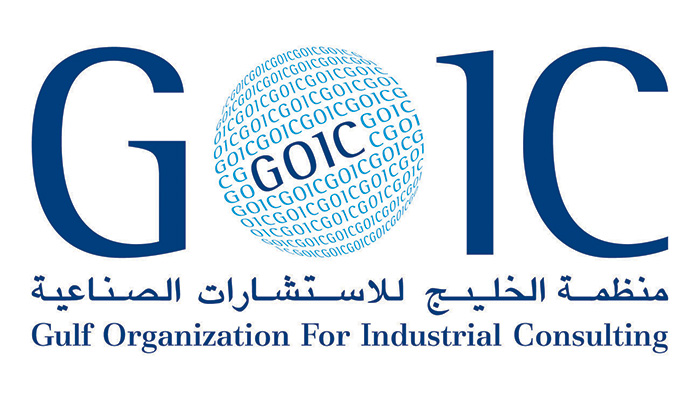
GOIC: The Development of Medical Equipment for People with Special Needs in the Gulf
The Gulf Organization for Industrial Consulting (GOIC) revealed that the manufacture and trade of medical tools and equipment for people with special needs in the GCC is a key area that requires attention and development. In fact, people with a variety of special needs (visually impaired, hearing impaired and speech impaired etc.) need specialised medical tools and equipment to assist them.
Most of GCC’s needs in this field are fulfilled through imports, because of the absence of serious local factories. Indeed, imports in this sector in 2014 were valued at approximately 380 million USD, with KSA getting about 68.6% of the imports’ share, followed by the UAE (15.4%) and the rest of GCC countries. On the other hand, exports and re-exports accounted for only 2.2% of the total value of imports.
According to the Harmonized System Codes, these devices include orthopaedic appliances and devices like crutches, surgical belts and trusses, splints and other fracture appliances; artificial parts of the body; hearing aids and other appliances which are worn or carried, or implanted in the body to compensate for a defect, artificial teeth and dental fittings, speech-generating devices and electronic devices for visually impaired people, in addition to regular and electric wheelchairs, medical beds, prosthesis, supporting medical tools and others.
These tools and equipment have promising prospects in the GCC, driven by the constantly increasing demand and the current limited number of local manufacturers that are mainly restricted to the area of dentures and crutches. In fact, there are a number of industrial licenses that include the manufacture of dentures and other medical supplies.
GCC medical devices and tools imports for people with special needs amounted to 2621.5 tonnes and were valued at 378.5 million USD in 2014; exports and re-exports amounted to 386.1 tonnes worth approximately 8.5 million USD; net imports amounted to 2235.4 tonnes (370.0 million USD).
In details, UAE’s medical devices and tools imports for people with special needs amounted to 255.2 tonnes (58.3 million USD); exports and re-exports amounted to 378.4 tonnes (4.6 million USD); net imports amounted negative to 123.2 tonnes (53.7 million USD).
Bahrain’s imports amounted to 48.7 tonnes (6.1 million USD); exports and re-exports amounted to 4.9 tonnes (0.9 million USD); net imports amounted to 43.8 tonnes (5.2 million USD).
KSA’s imports amounted to 1998.0 tonnes (259.6 million USD); exports and re-exports amounted to 1.0 tonnes (2.0 million USD); net imports amounted to 1997.0 tonnes (257.6 million USD).
Oman’s imports amounted to 123.2 tonnes (4.7 million USD); exports and re-exports amounted to 0.4 tonnes (0.03 million USD); net imports 122.8 tonnes (4.6 million USD).
Qatar’s imports amounted to 97.9 tonnes (11.4 million USD); exports and re-exports amounted to 0.1 tonnes (0.02 million USD); net imports amounted to 97.8 tonnes (11.4 million USD).
Kuwait’s imports amounted to 98.5 tonnes (38.4 million USD); exports and re-exports amounted to 1.3 tonnes (0.9 million USD); net imports amounted to 97.2 tonnes (37.5 million USD).
The following table sheds light on the imports, exports and net imports of medical devices and equipment for people with special needs in the GCC in 2014.
Source: GOIC. Note: Kuwait’s figures are estimates
The manufacture of specialised medical devices and tools is quasi non-existent in the GCC: most of this industry relies on heavy imports. In light of the increasing demand driven by the demographic increase, remarkable growth of average per capita income, the surge in the number of people with special needs, the rise in the number of traffic accidents causing impairments and other factors, decision-makers and investors need to encourage local industries in this promising sector. Currently, this industry has a prospect for development and expansion in line with industrial development strategy goals in this region. It contributes to economic diversification and the promotion of knowledge-based industries. It also helps reinforcing pharmaceutical and health security and bringing together efforts to achieve these objectives.
Indeed, efforts need to be deployed to establish and develop these industries locally in order to fulfil the increasing demand and gradually replace imports. Furthermore, investors, research and development centres and specialised medical equipment manufacturers need to work hand in hand, for these industries require advanced knowledge and technology, in addition to the technical expertise of biomedical engineering cadres.
Likewise, the establishment of local manufacturers require concerted efforts in the GCC with the contribution of the private sector. Complementary industries need to be established to benefit from existing industries’ outputs, and GOIC is capable of preparing promising investment opportunities and providing technical support and assistance to factories operating in this field.



























